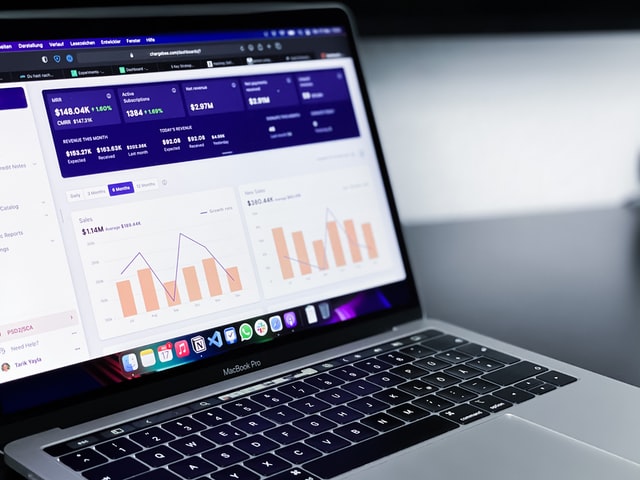The evolution of supply chain business models has been accelerated by unprecedented disruptions. As a result, there has been a clear shift from analog supply chains models of the past into a trajectory towards a digitalized ecosystem. These new business models recognize and necessitate the move to a digital and integrated supply chain that provides visibility and ease of use for consumers.
This journey is about moving towards a world where all parties participating across your network are connected to a single version of the truth. Supply chain thinking is shifting from ‘linear supply chains’ to ‘supply chain eco-systems’ propelled and supported by digital technologies.
Gartner has established a five-stage model of the journey to supply chain maturity, ranging from manual, analog systems to a fully digitalized ecosystem. Key differentiators along this evolutionary chain include consideration of data and collaboration, with the ultimate goal of integrating data across multiple systems to achieve a fully connected ecosystem that provides transparency and visibility for your company both internally and externally.
Read More
Topics: ERP, Fashion & Retail, Distribution, Supply Chain, Fashion & Apparel, Supply Chain Visibility, Supply Chain Network, Cloudsuite Fashion & Apparel, Infor CloudSuite PLM for Fashion, Infor CloudSuite Fashion PLM, Enterprise Software, Infor CloudSuite Fashion, Supply Chain Operations, Supply Chain Management, Infor CloudSuite M3, Infor CloudSuite ERP
A critical lesson many organizations have learned when measuring the success of analytics initiatives is that speed of deployment and widespread user adoption are key factors to consider. These are key benefits of analytic applications delivered with or embedded in ERP systems or business applications.
Analytic applications provide pre-built business intelligence (BI) and analytical capabilities that promise to democratize analytics because most of the hard work in transforming data to insights has already been done. However, the historical challenge these applications faced was that they weren’t built with agile cloud technology or modern data architectures that could keep up with the growing complexity, scale, and changing requirements of the line of business (LOB)-driven analytic requirements.
Read More
Topics: ERP, Fashion & Retail, Distribution, Supply Chain, Fashion & Apparel, Supply Chain Visibility, Supply Chain Network, Cloudsuite Fashion & Apparel, Infor CloudSuite PLM for Fashion, Infor CloudSuite Fashion PLM, Enterprise Software, Retail Supply Chain, Infor CloudSuite Fashion, Supply Chain Operations, Supply Chain Management, Infor CloudSuite M3, Infor CloudSuite ERP
Why settle for anything less?
Distributors often operate behind the scenes, making sure other businesses have what they need. The projects they support continue because tools, equipment, and supplies are where they needed to be. Patients have procedures because instruments are available. Structures are built because materials are ready. Restaurants can serve customers because food, drinks, plates, and pots are on hand.
Recent events revealed just how critical the distributor’s role is in the supply chain. In reality, it’s extremely complicated to seamlessly move such high volumes of goods. Especially as expectations and behaviors have evolved in the last decade, distributors have had to adapt their solutions, processes, and levels of service.
Historically, many distributors would customize enterprise resource planning solutions to meet their unique requirements. This approach, however, created an unwilling in-house IT cottage industry dedicated to supporting the infrastructure and modifications, instead of strategic initiatives. We see this during evaluations with prospective Infor customers; when distributors compare our CloudSuite solutions to their current footprint, we typically discover that hundreds if not thousands of their current modifications would no longer be needed. Because our solutions are designed for the distribution industry, the best practices those companies require are built in. For example, when HVAC and industrial product distributor, EMCO, moved to CloudSuite Distribution Enterprise, the company removed over 4000 modifications. EMCO no longer needed to maintain customizations and project manage long upgrade initiatives. That fluctuating, unpredictable overhead goes away forever because EMCO’s new mutli-tenant cloud solution is automatically updated monthly. Their technology is always current and always adding new distribution functionality to align with nuances and needs of this industry
Read More
Topics: ERP, Distribution, Supply Chain, Fashion & Apparel, Supply Chain Visibility, Supply Chain Network, digital disruption, Enterprise Software, Retail Supply Chain, Supply Chain Operations, Supply Chain Management, Infor CloudSuite M3, Infor CloudSuite ERP
The ability to execute, seamlessly and in real-time, is critical as your company works to develop a continuous supply chain. Being uniquely capable of connecting multiple facets of this execution -- not just to an order management system but also to TMS for transportation management and WMS for warehouse management will be key components to implementing continuous supply chain execution.
Integrated multi-party source-to-settle process
Sourcing execution or the ability to establish real-time connectivity to suppliers is key. What we are really speaking to here is the need to orchestrate end-to-end physical and financial operations between order management, global trade management, transportation, warehouse, product traceability, and even payables management.
Streamlined manufacturing
Manufacturing execution is focused on streamlining processes, driving better decision making and gaining productivity. Supply chains must optimize and automate the manufacturing process from raw materials and components to finished goods. Having the ability to anticipate and optimize lead times is crucial for downstream improvement.
Read More
Topics: ERP, Fashion & Retail, Distribution, Supply Chain, Fashion & Apparel, Supply Chain Visibility, Supply Chain Network, Cloudsuite Fashion & Apparel, Infor CloudSuite PLM for Fashion, Infor CloudSuite Fashion PLM, Enterprise Software, Retail Supply Chain, Infor CloudSuite Fashion, Supply Chain Operations, Supply Chain Management, Infor CloudSuite M3, Infor CloudSuite ERP
The future of planning is connected, intelligent, and continuous. Yet many companies remain so far away from this vision, it often seems unachievable. With many planning processes being so siloed and disconnected from execution, they can feel ineffective.
Fortunately, evaluations of the planning landscape reveal many organizations are adopting technologies that move towards a de-siloed, network-based approach to planning. For these companies, the primary goal centers around connecting planning capabilities to “a single version of the truth.” To optimize planning capabilities, it crucial to achieve this connection at the enterprise level as well as into the broader supply network.
But to do this involves using integrated business planning (IBP) or sales and operations planning (S&OP) to collaborate and analyze, perform demand planning to improve forecasting, optimize supply planning, and facilitate synchronization. Each of these areas are critical to a successful planning process and are more powerful when integrated and connected across a network.
Read More
Topics: ERP, Fashion & Retail, Distribution, Supply Chain, Fashion & Apparel, Supply Chain Visibility, Supply Chain Network, Cloudsuite Fashion & Apparel, Infor CloudSuite PLM for Fashion, Infor CloudSuite Fashion PLM, Enterprise Software, Retail Supply Chain, Infor CloudSuite Fashion, Supply Chain Operations, Supply Chain Management, Infor CloudSuite M3, Infor CloudSuite ERP
An estimated $350 billion of invoices are typically involved in supply chain finance programs. Known as "reverse factoring," this process assists suppliers in obtaining the capital needed to keep supply chains humming, as described by Aite Group. Opposed to traditional receivables financing or factoring, reverse factoring is driven by the buyer and its relationship to a bank or finance provider, with capital being made available to suppliers based on the relationship parameters.
Banks are happy to step in, within specific jurisdictions and credit profiles. Research firm Coalition reports that banks logged approximately $12.7 billion in revenue in the first half of 2020 via total supply chain finance volumes. However, limitations are significant, and often times, the suppliers that need financing the most are excluded from such programs.
Read More
Topics: ERP, Fashion & Retail, Distribution, Supply Chain, Fashion & Apparel, Supply Chain Visibility, Supply Chain Network, Cloudsuite Fashion & Apparel, Infor CloudSuite PLM for Fashion, Infor CloudSuite Fashion PLM, Enterprise Software, Retail Supply Chain, Infor CloudSuite Fashion, Supply Chain Operations, Supply Chain Management, Infor CloudSuite M3, Infor CloudSuite ERP
To keep up with lofty yet mandatory customer expectations, your supply chain can’t afford to stop investing in technology that improves processes, connects business partners and IoT data, and uses machine learning algorithms to improve business outcomes. If the people tasked with running your supply chain are relying on poorly built or outdated systems filled with data quality issues, then they need new technology solutions and strategies to overcome these shortcomings to create true value.
As you strive to balance cost while simultaneously improve your customer service, you are no doubt confronting issues that require better collaboration amongst your group as well as the numerous companies you interact with daily. The days of each department or company working on an island while hoping groups further downstream can correct any mistakes are long gone.
Nowadays, those of us in the supply chain space realize the need for ongoing collaboration with everyone who touches our supply chain. This can take the form of sharing data around forecasts, inventory positions, capacity plans, order status (both at rest and in-transit), as well as visibility into shipments.
Read More
Topics: ERP, Manufacturing, Distribution, Rentals & Equipment, Supply Chain, Fashion & Apparel, Infor M3 ERP, Enterprise Software, Retail Supply Chain, WMS, Supply Chain Management
Employees at hotel and other hospitality locations are the heart of their organisations, representing company values and mission to deliver the best possible guest experience consistently. But hospitality industry trends coming out of a very disruptive period show a worrying shortage of labour, with workers having time and financial support during lockdown to consider other options when it comes to their careers and their futures.
Making sure that hospitality work is rewarding, and that environments are supportive is more important than ever before to the future of the industry. How does advanced hotel technology help to address this vital concern? How must systems and processes in hotels and resorts best support hospitality workers day to day, help to identify how to reward their hard work, and retain their talent? Here are some examples to consider.
Read More
Topics: ERP, Fashion & Retail, Food & Beverage, Infor M3, Fashion & Apparel, Enterprise Resource Planning, CloudSuite Food & Beverage, Cloudsuite Fashion & Apparel, Infor M3 ERP
If you follow industry news, attend prospect events, or read our partner Infor's website, you know that vertical industry expertise is a favorite topic for Infor executives, leaders, and strategists. Industry-specific functionality is part of our critical foundation and a strong differentiating feature for our software solutions, we say frequently. But, have you thought about why? Do you know where our industry expertise comes from and how we leverage it into valuable selling points? Let’s look closer at what “industry expertise” means, why we are highly focused on it as a strategy, and how it will propel Infor forward.
The backstory
To understand where we are going, it helps to know how we got here. History provides context. In the evolution of ERP solutions, there’s a long and winding road that providers and users travelled before today’s Software as a Service (SAAS) model became the accepted best practice. In early days of ERP solutions, massive monolithic solutions with complex architecture and rigid code structure were the norm. Large enterprises invested heavily and hired consultants to customize the operational features. The heavily modified systems were costly to update.
Then came cloud computing. But, for companies to take advantage of the benefits of multi-tenant cloud deployment, they needed to have their industry-specific functionality already built into the solution—so modifications wouldn’t be needed. Modifications slow down deployment and can get in the way of upgrades.
Infor had been heavily investing into industry-specific features of the core ERP solutions. The solutions contain the functionality needed for industry specific applications—making it easier to migrate to the cloud.
Read More
Topics: ERP, Fashion & Retail, Food & Beverage, Infor M3, Fashion & Apparel, Enterprise Resource Planning, CloudSuite Food & Beverage, Cloudsuite Fashion & Apparel, Infor M3 ERP
Chances are your brand already relies on an ERP solution to house foundational functions and master data. But can it withstand the rapid developmental, transactional, and digitized industry of the future? To meet the rigorous demands of supply, demand, financials, inventory management, and the needs of a collaborative network, the ERP solution employed by your company needs to have the flexibility to meet changing business models, encapsulate industry best practice processes, and integrate in real time with other key applications. Just as your people need to be connected in a collaborative network, so do your technology solutions.
Read More
Topics: ERP, Fashion & Retail, Supply Chain, Fashion & Apparel, Product Lifecycle Management, Infor M3 ERP, Enterprise Software, Supply Chain Management


.jpg)








